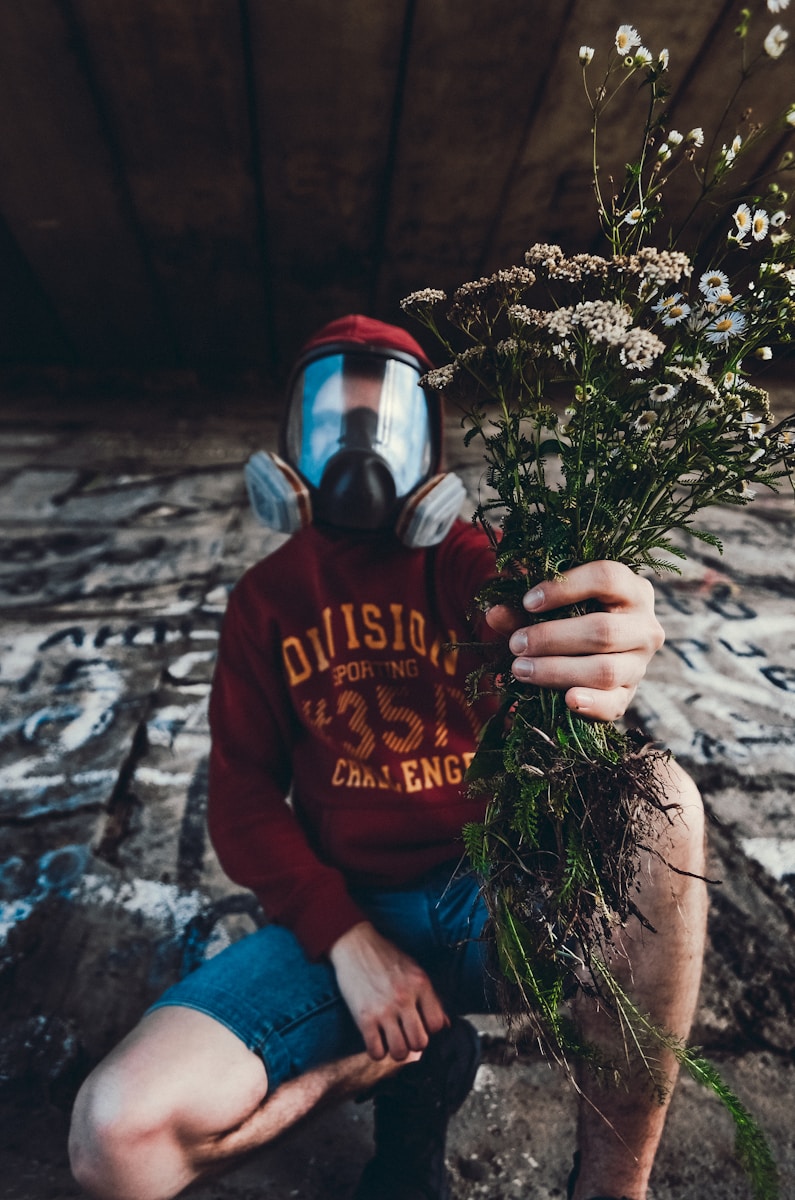Relationships are the cornerstone of human experience, providing support, love, and companionship. However, when unhealthy patterns or toxic traits infiltrate a partnership, even the strongest bonds can be strained or broken. In this comprehensive guide, we’ll explore the most common toxic traits in relationships, examine the underlying causes, and offer practical strategies to address and heal these damaging dynamics.
Understanding Toxic Traits in Relationships
Not all unhealthy behaviors are immediately obvious or extreme. Toxic traits can be subtle, slowly undermining trust and intimacy over time. Recognizing these patterns is the first critical step toward fostering healthier connections, whether with a romantic partner, family member, or close friend.
What Are “Toxic Traits”?
A toxic trait is a behaviour, attitude, or pattern that consistently harms another person emotionally, psychologically, or physically. Unlike occasional mistakes or arguments, these traits are recurrent and often indicate deeper unresolved issues within one or both partners.
10 Common Toxic Traits in Relationships
Below is a list of toxic behaviors frequently observed in relationships. While not exhaustive, becoming aware of these signs can help individuals and couples assess their patterns and seek change where needed.
- Constant Criticism
Regularly finding fault, belittling, or undermining your partner damages self-esteem and creates a hostile environment. Constructive feedback is essential, but persistent negativity erodes confidence and trust.
- Manipulation
Manipulative partners use guilt trips, emotional blackmail, or exaggeration to control outcomes or behaviors. This undermines honesty and autonomy in the relationship.
- Lack of Accountability
Refusing to accept responsibility for mistakes, shifting blame, or playing the victim can leave partners feeling invalidated and resentful.
- Jealousy and Possessiveness
Occasional jealousy is natural, but excessive monitoring, accusations, or restricting your partner’s autonomy can quickly become toxic and suffocating.
- Passive-Aggressive Communication
Indirect expressions of anger, such as sarcasm, silent treatment, or backhanded comments, prevent healthy, open dialogue and foster feelings of confusion and anxiety.
- Gaslighting
This insidious form of psychological manipulation makes someone doubt their reality, memory, or perceptions, leading them to question their own sanity or judgment.
- Lack of Support
Partners who consistently minimize, ignore, or discourage each other’s goals, feelings, or achievements can erode motivation and increase feelings of loneliness.
- Controlling Behavior
Controlling partners may dictate who you see, what you do, or how you spend money, restricting your independence and sense of self.
- Dishonesty
Repeated lies, secrets, or half-truths corrode trust—the foundation of any relationship.
- Emotional Unavailability
Withholding affection, communication, or vulnerability prevents intimacy and may leave a partner feeling abandoned and alone.
Red Flags: How to Spot Toxic Traits Early On
It’s not always easy to spot toxic patterns, especially early in a relationship when emotions run high. Here are some red flags to look out for:
- Unexplained mood swings or outbursts of anger
- Over-dependence that stifles other relationships or activities
- Consistent criticism disguised as “helpfulness”
- Attempts to isolate you from friends and family
- Frequent guilt trips or emotional manipulation
If you notice these signs, pause and reflect on whether they are patterns—rather than isolated incidents. Talking with a trusted friend or therapist can offer additional perspective.
Why Do Toxic Traits Develop?
Toxic traits rarely arise out of nowhere. They often have roots in individual psychology, past experiences, or learned behaviors. Understanding these origins can be key to empathy and healing.
Common Causes of Toxic Behaviors
- Unresolved Childhood Trauma: Early wounds or attachment issues can deeply affect adult relationships.
- Low Self-Esteem: Insecurity may manifest as control, jealousy, or the need to “win” every argument.
- Poor Communication Skills: Some people resort to manipulation or passive-aggression because they lack healthier tools.
- Previous Toxic Relationships: Patterns learned from family or past partners can become ingrained.
- Untreated Mental Health Issues: Anxiety, depression, or personality disorders can intensify negative traits if unaddressed.
Recognizing the origins of toxic behavior doesn’t excuse it, but it does offer a roadmap for addressing the underlying problems rather than just the symptoms.
How Toxic Traits Affect Mental Health
The consequences of toxic relationship patterns don’t just end with emotional arguments or bad breakups. They can have profound and lasting impacts on your mental and even physical well-being, including:
- Anxiety and Hypervigilance: Constantly walking on eggshells or second-guessing yourself can drain your emotional reserves.
- Depression: Chronic criticism or emotional neglect leads to feelings of sadness, hopelessness, and isolation.
- Low Self-Esteem: Repeated put-downs can make you question your worth and capabilities.
- Physical Symptoms: Stress from a toxic relationship can cause headaches, sleep disturbance, digestive issues, and more.
- Difficulty Trusting Others: Past toxic dynamics can make future relationships challenging, leading to fear of vulnerability or avoidance altogether.
What If I Recognize Toxic Traits in Myself?
It takes courage to acknowledge if you’re exhibiting unhealthy behaviors. Change is possible, and many people who learn from their mistakes go on to build and maintain fulfilling, healthy relationships. Here are steps to foster personal growth:
- Practice Self-Reflection
Regularly assess your own actions, triggers, and emotional responses. Journaling and mindfulness meditation can be powerful tools.
- Seek Feedback
Ask trusted friends or your partner for honest input about your behavior, and listen without defensiveness.
- Learn Healthy Communication
Invest in learning assertive and empathetic communication. Practice expressing needs and boundaries directly, while also listening actively to others.
- Address Underlying Issues
Therapy can help unpack childhood wounds, trauma, or other root causes driving toxic patterns.
- Commit to Growth
Personal development is a lifelong journey. Celebrate progress along the way and remain open to learning.
How to Address Toxic Traits in a Partner or Loved One
If you recognize toxic patterns in someone close to you, it’s natural to want to help or heal the relationship. Here’s how to approach the situation constructively:
- Communicate Openly: Use “I” statements to express how their behavior affects you. For example, “I feel hurt when you ignore my calls.”
- Set Clear Boundaries: Define what is acceptable and what isn’t. Stick to your boundaries and reinforce them respectfully.
- Avoid Enabling: Don’t make excuses or cover up their behavior. Let them experience the consequences of their actions.
- Encourage Professional Help: Suggest counseling or support groups, individually or as a couple.
- Prioritize Your Wellbeing: Remember, you are not responsible for fixing someone else. Take care of your mental and emotional health first.
When to Walk Away: Recognizing Deal-Breakers
Some toxic traits—like physical violence, relentless gaslighting, or repeated infidelity—cross the line from damaging to outright dangerous. If your safety, dignity, or mental health is at risk, it may be necessary to end the relationship, even if love remains.
Signs that it may be time to walk away:
- Physical, verbal, or emotional abuse
- Total lack of respect or empathy
- Repeated betrayal or dishonesty
- Unwillingness to change despite repeated conversations or therapy
If you find yourself in a harmful situation, reach out to trusted friends, family, or local/domestic violence resources for support and a safe exit plan.
Fostering Healthy Relationship Habits
Whether you’re healing from past toxic patterns or looking to “immunize” your relationship against them, cultivating healthy habits is essential. Focus on the following pillars:
- Open Communication: Practice honesty, active listening, and emotional transparency.
- Mutual Respect: Value your partner’s boundaries, independence, and differences.
- Accountability: Take ownership of mistakes and prioritize growth as individuals and as a couple.
- Support and Encouragement: Champion each other’s dreams and well-being.
- Shared Values and Goals: Regularly check in on what you both want and need from your relationship, and work toward those goals together.
Healing After Toxic Relationships
Breaking free from toxic dynamics can be one of life’s biggest challenges—and most profound growth opportunities. Here are steps for recovery:
- Allow Yourself to Grieve
Acknowledge the loss, even if walking away was necessary. You may grieve not just the person but the hopes you had for the relationship.
- Reconnect with Yourself
Rediscover your passions, hobbies, and strengths. Self-care is crucial during this stage.
- Seek Support
Therapists, support groups, or understanding friends can provide validation and guidance.
- Reflect, Don’t Ruminate
Learn what the relationship taught you about your values and needs, but avoid getting stuck in regret or self-blame.
- Set New Boundaries
Use your insights to foster healthier patterns in future relationships—romantic or otherwise.
When to Seek Professional Help
Sometimes, overcoming toxic patterns requires external support. Consider reaching out to a mental health professional if:
- You feel trapped, unsafe, or hopeless in your relationship
- Communication repeatedly breaks down despite your efforts
- You struggle with low self-esteem, anxiety, or depression due to relationship issues
- Toxic patterns persist after multiple attempts to change
Qualified therapists can help unravel complex patterns, build healthy communication skills, and foster emotional healing.
Conclusion: Building Healthier, Happier Relationships
Understanding and addressing toxic traits is not about assigning blame, but about empowering yourself and your loved ones to build relationships rooted in respect, empathy, and mutual growth. Self-awareness, open communication, and a willingness to change are key to breaking the cycle of toxicity and creating the loving bonds we all deserve.
If you’re struggling with toxic relationships or behaviors, remember you’re not alone—and it’s never too late to pursue healing, for yourself and those you cherish.




